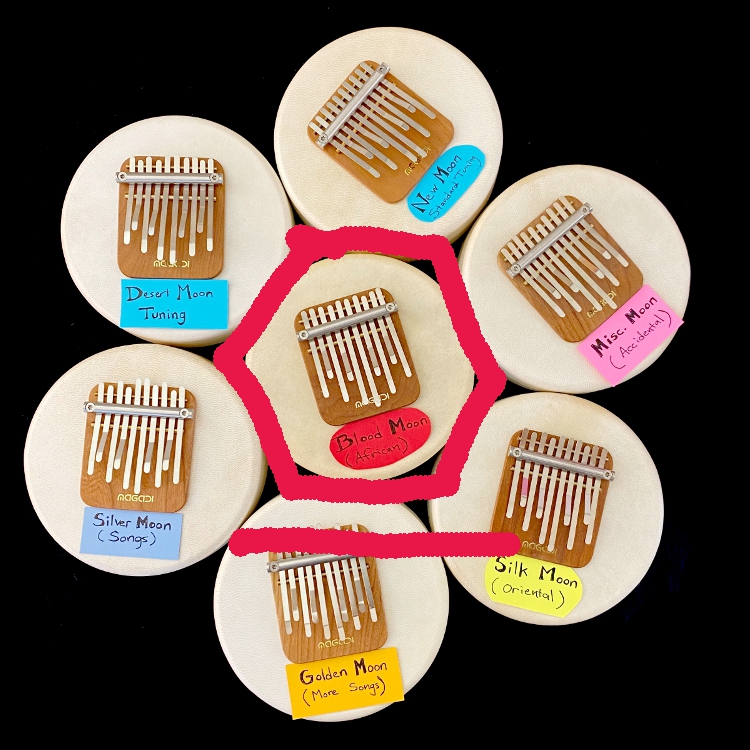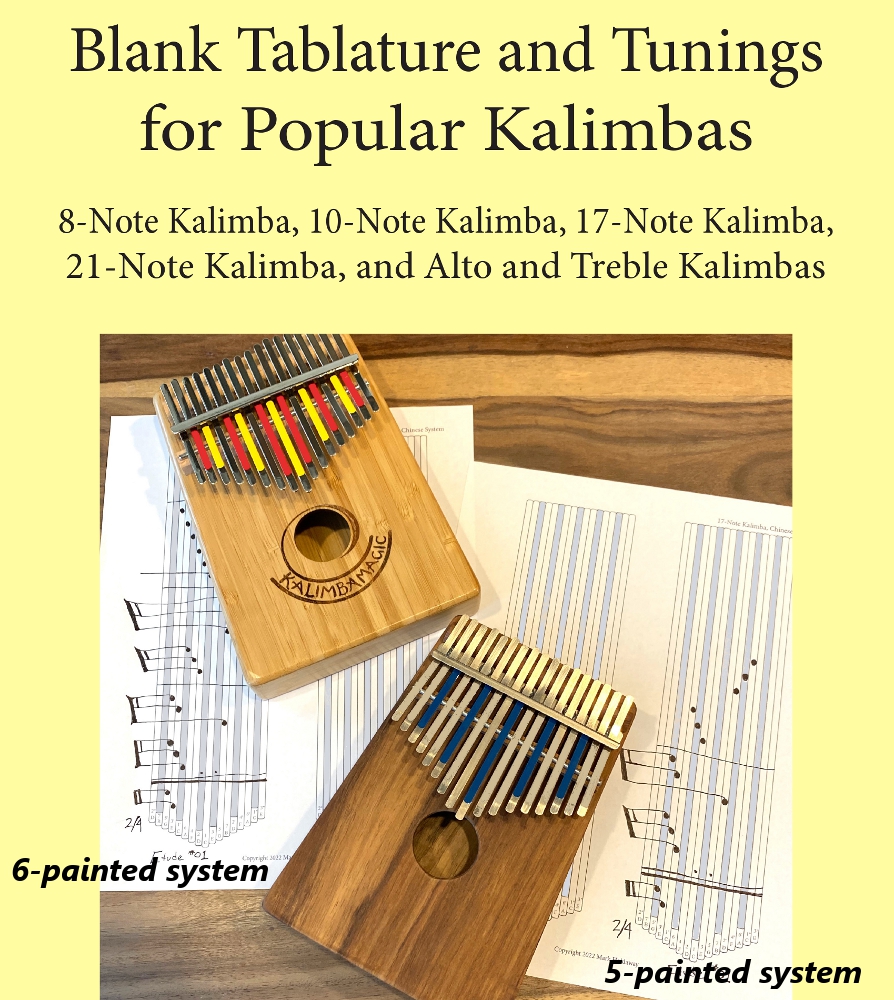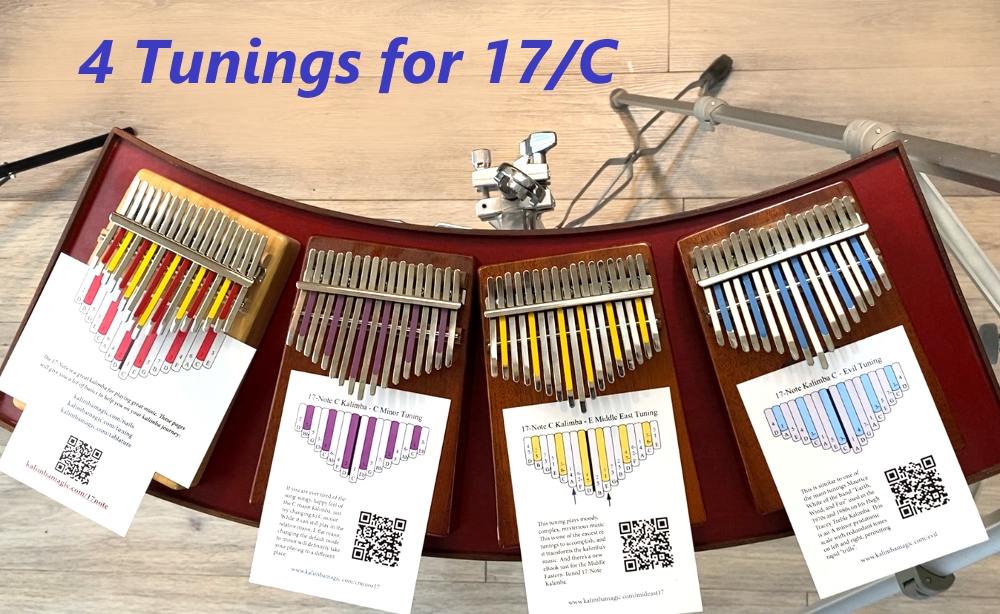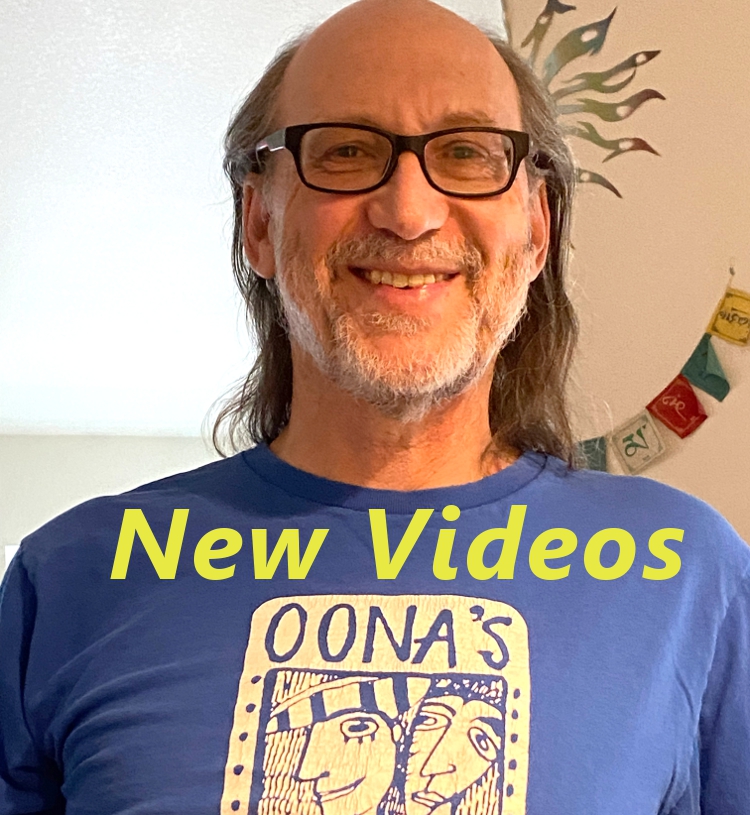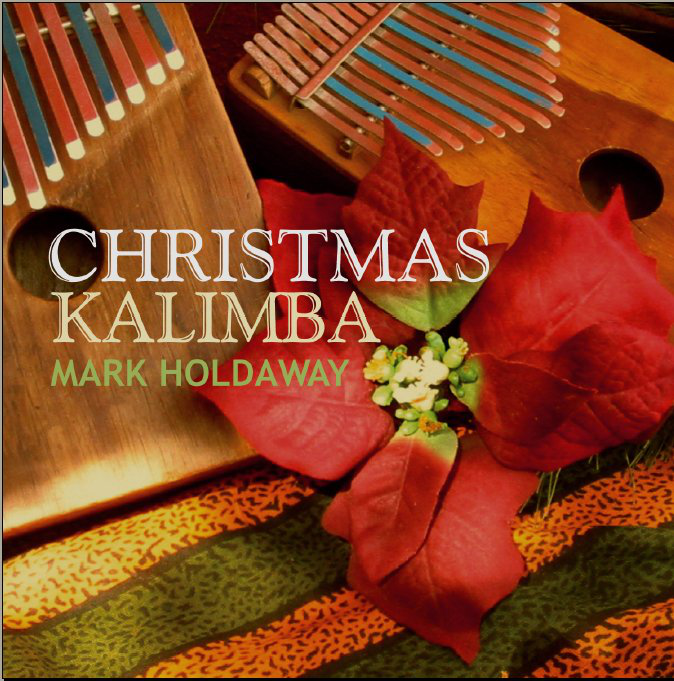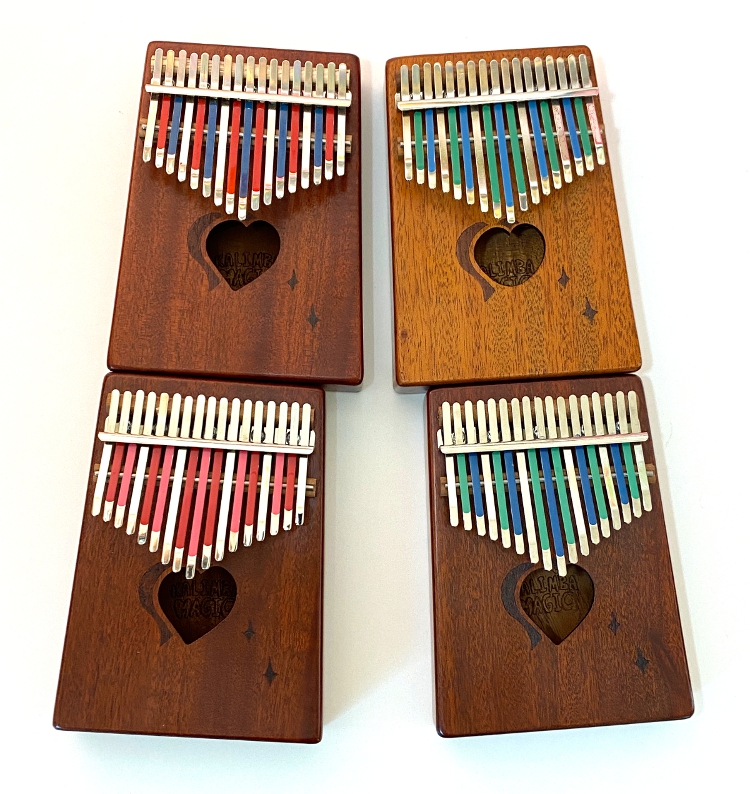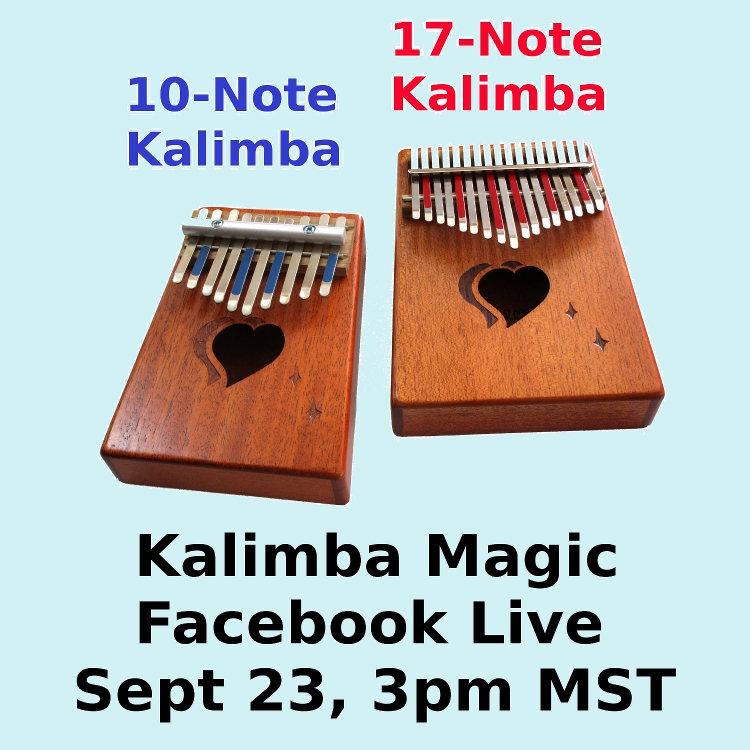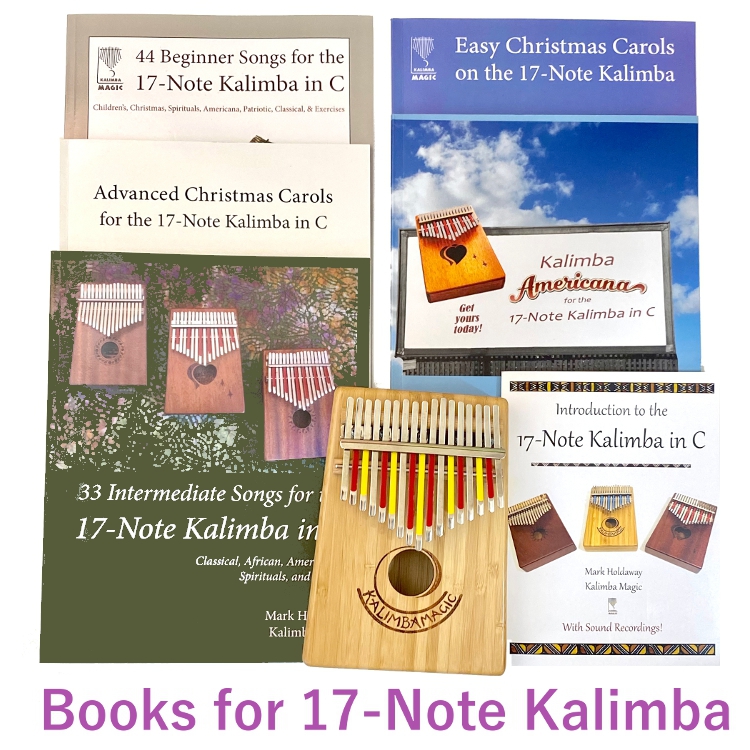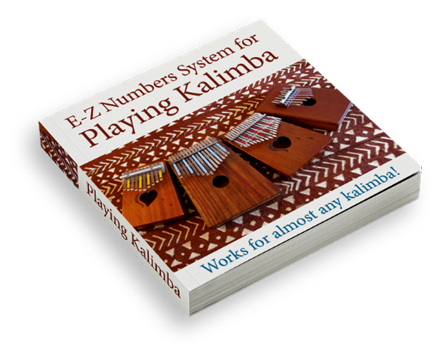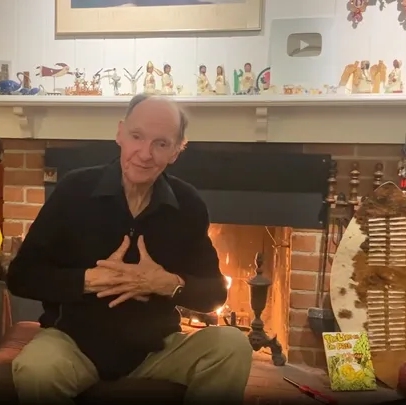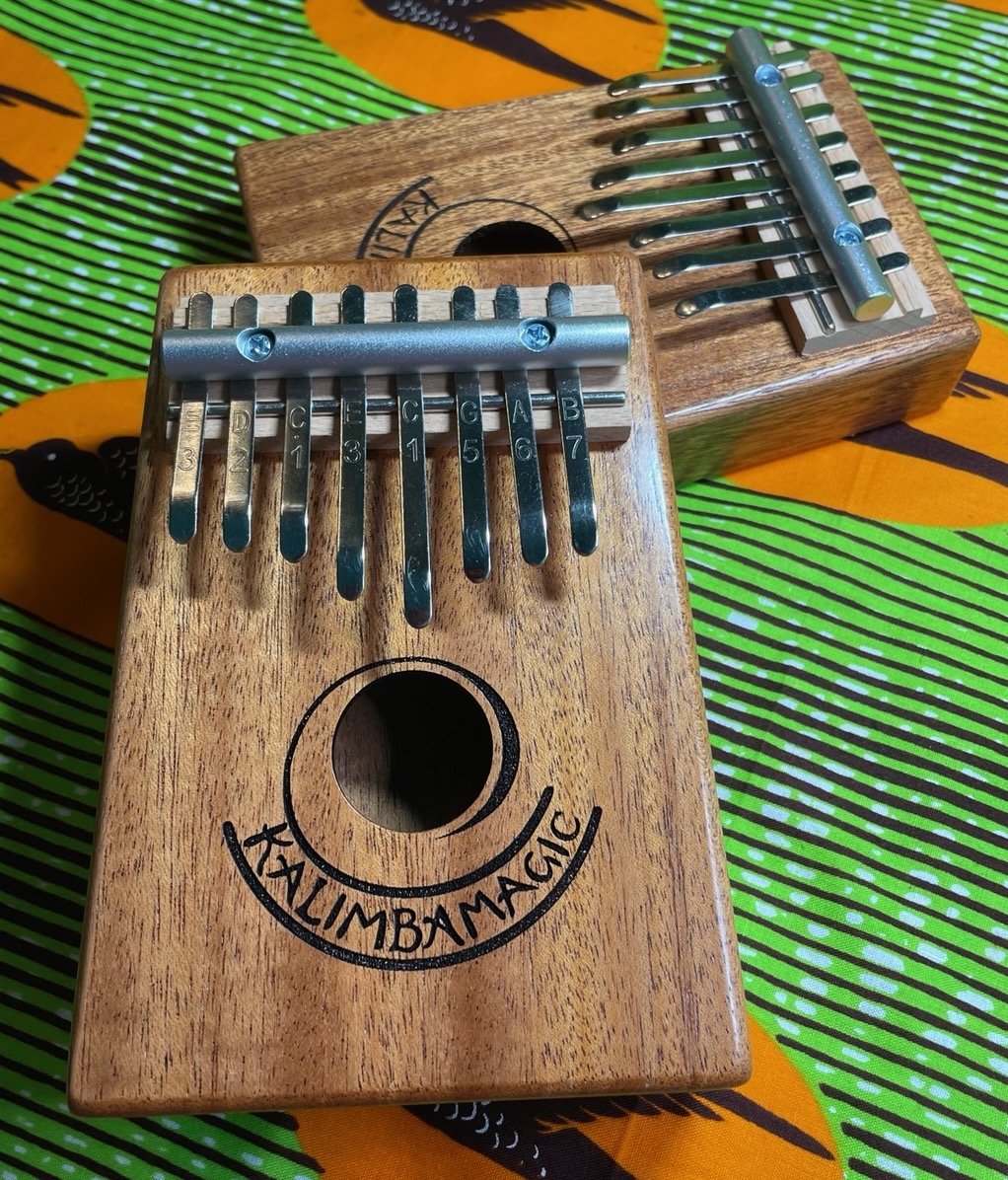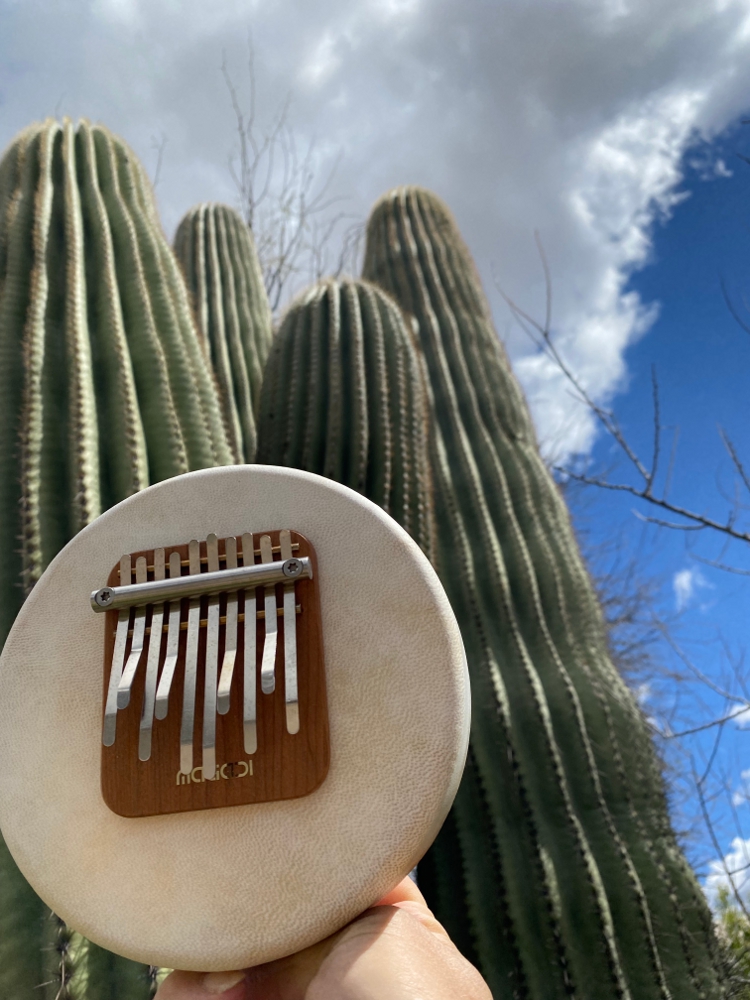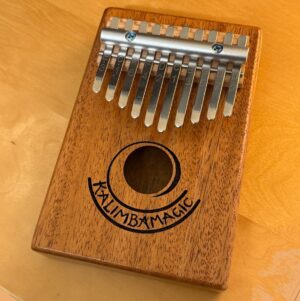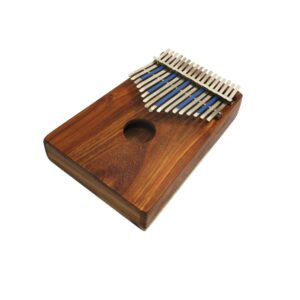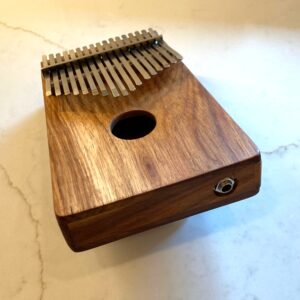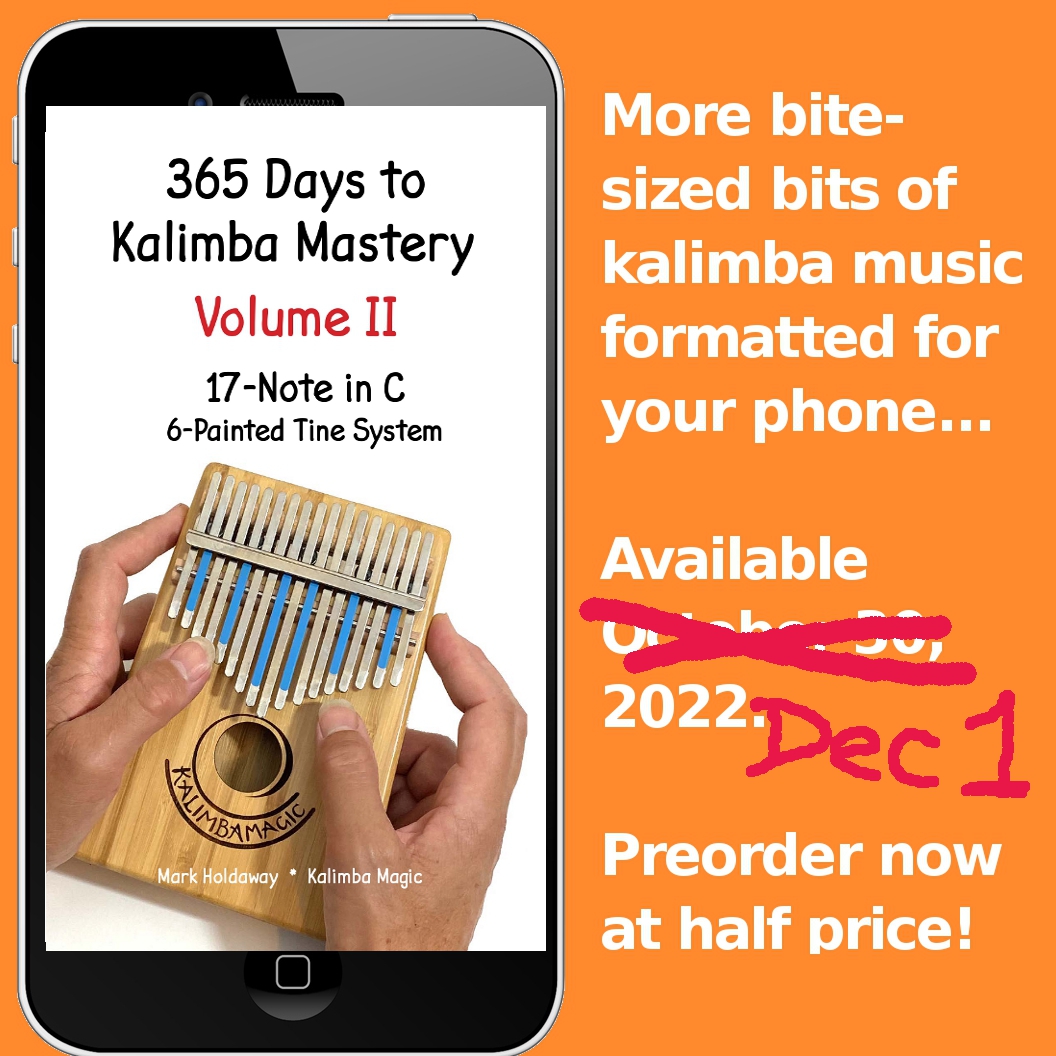
“Volume II of 365 Days to Kalimba Mastery” is Delayed
I’m sorry to say that the promised Volume II of “365 Days to Kalimba Mastery” is not finished. That is, if you are one of the 100+ people who pre-ordered it at half price… you will have to wait another few weeks. You can still pre-order it now for half price at $6. I’ll come through… hopefully by December 1 2022. I do have a good track record – I was able to put out Volume I on time… and I have written over 100 kalimba books and kalimba downloads over the last 17 years. Creating these books and helping people learn to play so many different kalimbas has been
